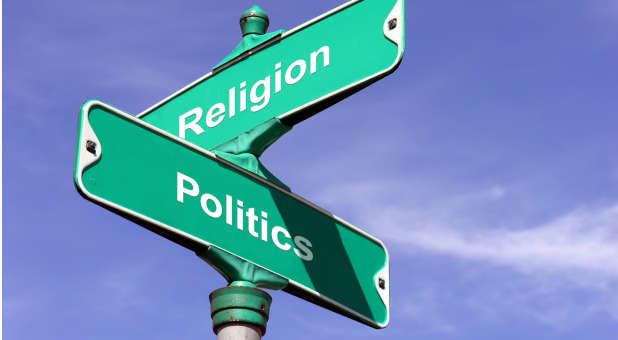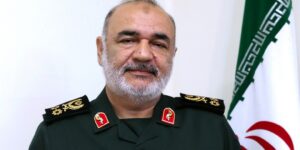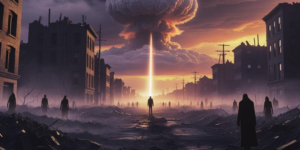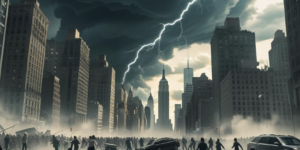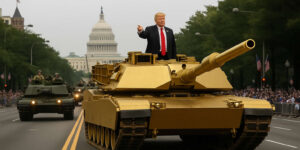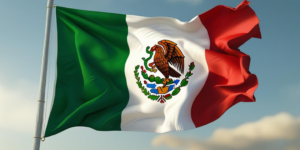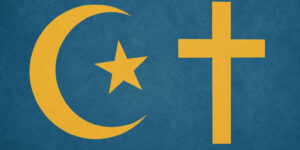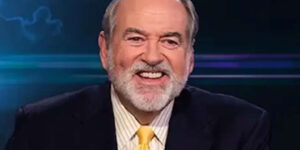What Role Does the Church Play in the Political Arena?
Most Sunday mornings, I attend a political assembly.
No specific candidate for a political office receives open support. Neither group leaders nor attendees generally focus on individual political issues or measures. The assembly has traditionally represented a continuation of the New Testament political assembly referred to as “church.”
In an online article titled “The Politics of the Church in the World” published in the Fuller Studio, theology author Tommy Givens points out that Scripture refers to the “church” as a political group that has its own jurisprudence and prime movers. The church can submit itself only to the authority of Jesus Christ but can and does regularly maintain influential relationships with other authoritative communities.
Fifty days after Jesus’ resurrection and 10 days following His ascension into heaven, the day of Pentecost, the Bible reveals the organization of the first Christian church in Jerusalem. Peter and other followers of Jesus were gathered in one place when the Holy Spirit descended upon them (Acts 2:2-4). The apostles remained in the location and taught Jesus’ followers in that location for some time after Pentecost.
Despite the often-political orientation of several of Jesus’ apostles, many members of the early church did not have politics in their foreground. The citizen class from which the church was attracting many of its converts remained politically and socially weak and too unorganized to develop a strong interest in statecraft. Many believers expected the imminent establishment of the kingdom of God on earth; many rejected the emperor cult and professional officers who had power over life and death.
Christian proselytes of the first century who showed an interest in politics often held one of two contrary views. One view, based on concepts espoused by the apostle Paul, accepted the existing political order as a gift from God for the benefit of the public and proposed that Christians should be subject to the government. In contrast, the second view rejected cooperation with the government both in military service and public mediation.
The two opposing views of government prominent in the first-century Christian community in Jerusalem represented conservatism and pacifism. Both expressed their views within and outside the church but did not seem to evoke much church-state controversy. Conflict seemed to be primarily within the church body. Under the leadership of the apostles, the Jerusalem church embraced diversity and supported the preparation for missionary work.
During the second century, many Christian communities inclined to secrecy to avoid hostility from the Romans; Roman writers regularly showed hostility toward Christians. Christians feared Roman officials would persecute them if the officials discovered they rejected the gods whose favor the Romans believed had brought success to their Empire. The early spread of the Christian faith was largely invisible during the second century, but by the third century the expanded authoritative structure of the church clearly indicated increased civil authority.
In the fourth century, the Christian church became increasingly involved in politics. Christians were appointed to government positions. Emperor Constantine the Great legalized Christianity in A.D. 313, and 10 years later Christianity became the official religion of the Roman Empire. The church displayed considerable power in A.D. 390, when the bishop of Milan would not allow Emperor Theodosius to receive the Lord’s Supper until he repented. The emperor complied.
The Roman Empire collapsed during the fifth century A.D., ushering in the Middle Ages that continued until the Renaissance, which began in approximately A.D. 1300. During the Middle Ages, the church held and often exercised tremendous political power. Church authorities held and often wielded more power than kings and queens. The church could tax and demand that citizens obey its laws. Christian clergymen often flaunted political authority.
Author Lesley Kennedy attached to the title of the article “How the Renaissance Challenged the Church and Influenced the Reformation” this statement: “As interest in cultural, intellectual and scientific exploration flourished, support for an all-powerful church diminished.”
The Catholic Church penalized dissent and muzzled reformists. Church officials began to quarrel, and support for an all-powerful religious entity shrank. The Renaissance saw the rise of strong central governments and witnessed the birth of humanism.
In the early 16th century, the Protestant Reformation began. Most scholars and researchers consider the Reformation to have been a political development because Catholic Church officials had earlier become secular rulers with considerable authority notwithstanding their religious positions. The Reformation reduced the power of the church and brought about increased freedom of thought and religious expression. The movement prepared the path for the overthrow of some existing governments and the emergence of modern states and power for national leaders.
The formal separation of the church and politics in the United States came with the passage of the Bill of Rights in 1791. The stage for modern-day relations between the church and politics in Europe was set in 1905 with the passage of a law in France separating church and state or religion from political power.
In the 21st century, politics plays an important but uncertain role in society. Christians may consider the state and politics important regarding justice, security and defense but may not look on the government as a primary source of truth and law.
For most Christians, the church and state represent two distinct entities that focus on different life functions. {eoa}
Franklin T. Burroughs was awarded a Nishan-e-Homayoun by Shah Mohammad Reza Pahlavi for his work in the Iranian Ministry of Court and has received certificates of recognition from the California Senate and State Assembly. He is a member of the adjunct faculty of John F. Kennedy University and has served as president of Armstrong University and interim dean of the School of Business at Notre Dame de Namur University. He has taught at the University of California at Berkeley. He has been the managing director of the U.S. Chamber of Commerce in Iran and has served as consultant to the Ford Foundation, UNESCO, the U.S. Department of Commerce and the government of Iran. He has also been visiting scientist at the U.S. Department of Energy. He serves as an English language officer (contractor) with the U.S. Department of State. Dr. Burroughs serves as an international consultant in education, Middle East affairs and cultural diplomacy.
Read articles like this one and other Spirit-led content in our new platform, CHARISMA PLUS.



